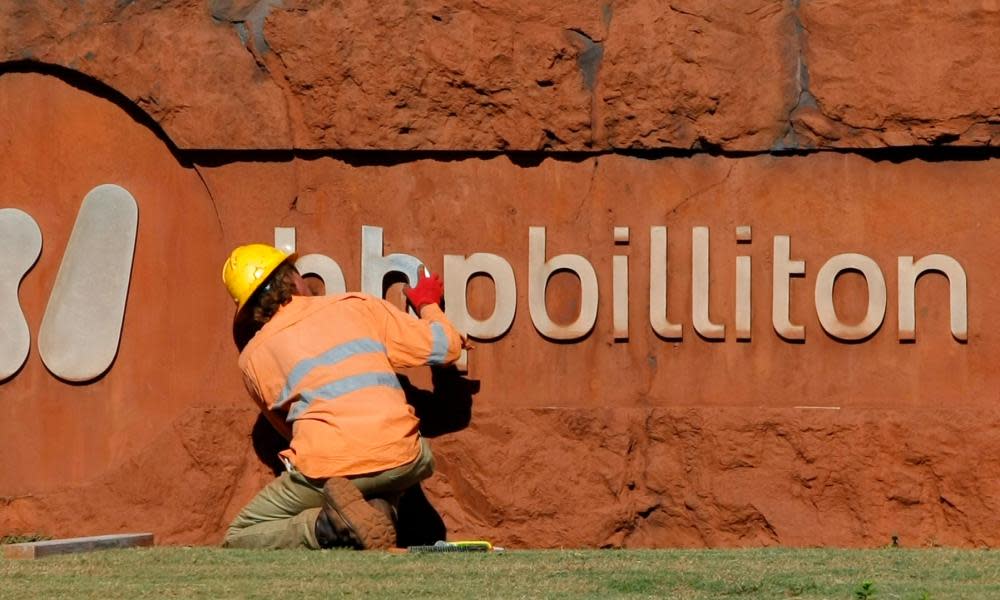Tax office suggests Labor bills were essential to BHP's $500m settlement

BHP’s recent half-a-billion-dollar settlement with the Australian tax office would not have been possible without amendments introduced by the former Labor government, the tax office has suggested.
In a letter to the shadow assistant treasurer, Andrew Leigh, seen by Guardian Australia, the taxation commissioner, Chris Jordan, confirmed the tax office’s long-standing dispute with BHP, relating to the amount of tax BHP ought to have paid between 2003 and 2018 after selling its Australian commodities to its Singapore marketing business, was successfully prosecuted with two bills introduced by the former Labor treasurer Wayne Swan. The bills, which were introduced in 2012 and 2013, made it more difficult for multinationals to shift taxable profits offshore.
The first bill, introduced in 2012, removed doubt that Australia’s tax commissioner had authority to make determinations on treaty-related transfer pricing, with amendments applied retrospectively from 1 July 2004.
The second bill, introduced in 2013, modernised Australia’s domestic transfer pricing and anti-tax avoidance rules, with the changes applying from 1 July 2013.
Jordan nominated both bills as having allowed the ATO to bring its long-running dispute with BHP Billiton to a close.
“Where a dispute spans multiple years, more than one transfer pricing provision may be relied upon depending on the year in dispute,” Jordan said in his letter.
Last month, BHP finally agreed to pay $529m in additional taxes to settle its dispute with the ATO about its marketing operations in Singapore for the years between 2003 and 2018.
BHP said its settlement was not an admission of tax avoidance. However, it welcomed the dispute’s resolution, saying it would provide certainty for future taxation treatment.
“That certainly is good for business and for Australia,” BHP’s chief financial officer, Peter Beaven, said last month.
But Swan said BHP’s settlement confirmed the miner had been using its Singapore marketing hub for “tax evasion” and he criticised the Coalition for opposing his bills at the time.
“The settlement with the tax office was made possible by laws I passed as Australian treasurer in 2013, which were opposed by the Liberal National party on the grounds they were retrospective,” he said.
“These laws were used in the 2017 Chevron judgement handed down by the federal court, which added $430m to the budget bottom line.”
The ATO believes the Chevron case will help authorities collect an extra $10bn in tax from multinationals over the next decade.
Last week, when the ATO released its annual tax transparency report, it said the tax effects of the Coalition government’s multinational anti-avoidance law (MAAL), introduced in January 2016, were also becoming apparent.
“Already in the 2016-17 income year, a transitional year, $2.5bn of sales income has been reported. In subsequent years, this jumps to approximately $7bn or more of additional sales each year,” the ATO said of the effect of the MAAL.

 Yahoo News
Yahoo News 
